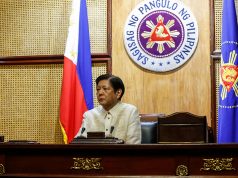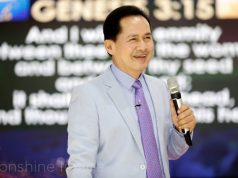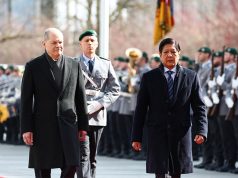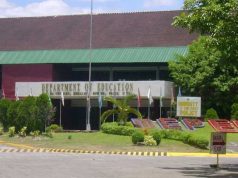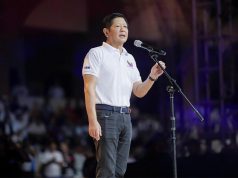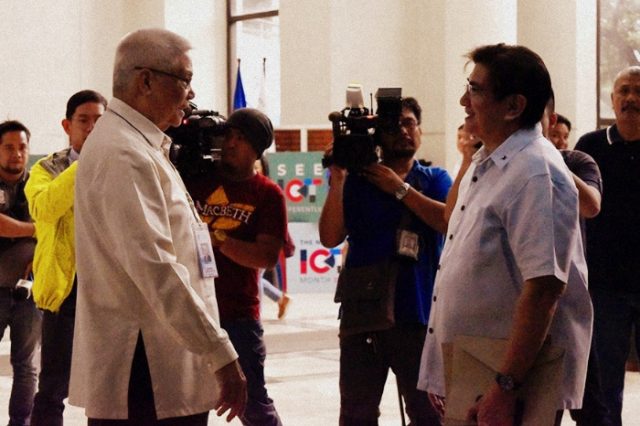
(Updated at 6:04 p.m. on July 4) Senator Gregorio “Gringo” Honasan II is the new head of the Department of Information and Communications Technology (DICT), a position that has specific requirements under the act that established it.
Honasan took his oath as the new secretary of the agency before President Rodrigo Duterte last July 1. He replaced Eliseo Rio, who had been the acting secretary since 2017.
Rio, who will remain undersecretary for operations, hailed the appointment of Honasan.
“My weakness is management. I am always concentrated on technical matters. This is what is lacking right now. The entry of Sec Honasan is what the department really needs,” he said, as quoted by ABS-CBN News on Tuesday, July 2.
Honasan’s background
Honasan was a member of the Philippine Military Academy class of 1971. He also earned an economics degree at the University of the Philippines and a masteral degree in business management at the Asian Institute of Management.
The former lawmaker received several awards as a soldier, including the Presidential Commendation Medal for Government Service by late President Corazon Aquino.
He later joined uprisings against Aquino and was only granted amnesty in 1992 by then-President Fidel Ramos.
There was no mention in his Senate profile of any background in the field of information technology and communications.
A DICT chief’s qualifications, according to law
If Rio is a licensed electronics engineer who pursued a military career, held several positions in the public and private telecommunications field, a similar notch in Honasan’s record is missing.
Republic Act 10844, the relatively new law that created the DICT, states specific qualifications to be appointed as the agency’s secretary, undersecretary and assistant secretary.
Honasan's appointment as DICT Secretary only shows how Duterte values no law.
DICT Law clearly requires a person of competence in the area of technology.
Honasan? What's his qualifications? pic.twitter.com/b71VUjrxFD
— Josiah (@josiahquising) July 2, 2019
In Section 11, the technology secretary should be a citizen or resident of the Philippines and with:
“At least seven years of competence and expertise in any of the following: information and communications technology, information technology service management, information security management, cybersecurity, data privacy, e-Commerce, or human capital development in the ICT sector.”
It was not specified if the years of experience included an educational degree in information and communication technology.
Rio is an electronics and communications engineer and a former military general.
Meanwhile, his predecessor Rodolfo Salalima was a member of the National ICT Advisory Council, former president of the Philippine Chamber of Telecommunications Operators and former board director of the Telecoms Infrastructure Corporation of the Philippines.
What Honasan’s colleagues say
When Duterte nominated him last year, his colleagues cited his background in security that qualifies him for the position.
Senator Cynthia Villar said that Honasan’s security background can handle concerns on hacking.
“I think Senator Honasan is equipped to solve that,” she said.
Meanwhile, Senate President Vicente Sotto II said Honasan already has a decade of experience in military intelligence to make him competent in the job.
“Ang akala kasi ng karamihan masyadong tight or focus dun sa sinasabi it’s not that dapat may 7 years background sa telecommunications, not exactly that. Eh may 10 years background [sya] sa intelligence communication… He will more than suffice as far as his qualifications are concerned,” Sotto said.
Honasan’s still has to undergo confirmation through hearings of the Committee on Appointments.
Role of the DICT
The DICT is the other half of the former Department of Transportation and Communication. The former DOTC was split into two in 2015. The transportation department is currently led by Secretary Arthur Tugade.
According to law, the DICT’s main mandate is to be “the primary policy, planning, coordinating, implementing, and administrative entity of the Executive Branch of the government that will plan, develop, and promote the national ICT development agenda.”
It is currently handling matters surrounding the entrance of Mislatel, the third telco company in the country.
Editor’s Note: The latest update corrects an error that Secretary Honasan was part of the PMA class of 1981. He’s a member of the 1971 class.




